The Art of Criticism
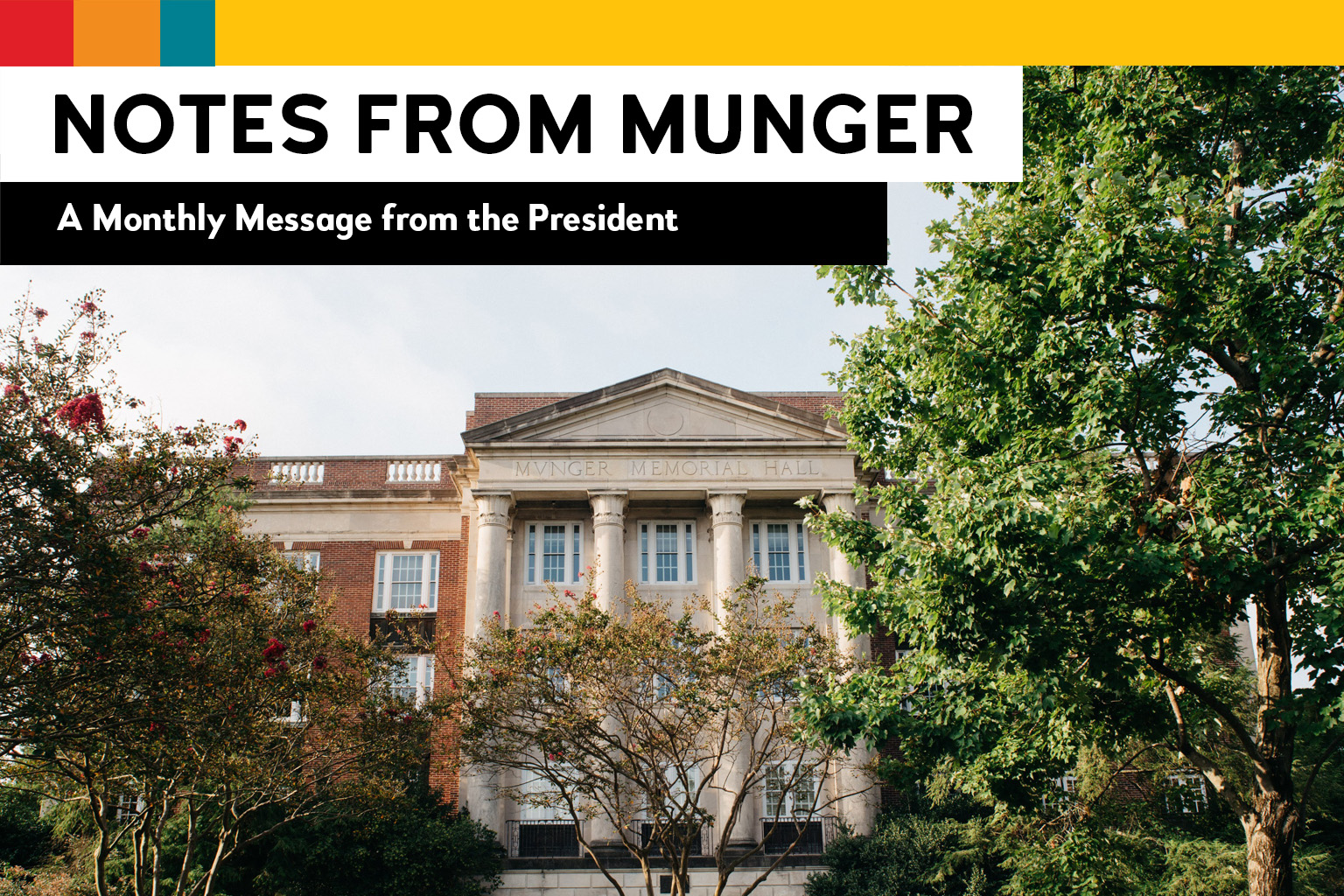
Notes from Munger are President Daniel Coleman‘s monthly letters to the Birmingham-Southern College community.
Farewell, Professor Bloom
I was reading one of the many newspapers I skim every morning on my phone and ran across the obituary of one of my college professors, Harold Bloom. As an English major, I had Professor Bloom’s senior seminar, which as I recall was about none other than Professor Bloom himself.
When I read his obituary, I had a Proustian moment of “involuntary memory.” I remembered how that class was at 8 a.m.; how I frequently showed up sans shower or breakfast. I remembered how Professor Bloom could quote pages of poetry in Hebrew or Greek or Latin or English. I remembered how he told us that he had written a review under a pseudonym in The Atlantic that trashed his own book. At the time, I did not know what to think about that. Today, it gives me insight into how I think he really thought about literature, and perhaps everything else.
At 21, I was convinced Professor Bloom was the smartest person I had ever met. Today, at 55, I ponder whether this is still true. I have met brilliant people over the years, some well-known, some not. It is hard to know if they were smarter than Professor Bloom. In the bike race of intelligence, I have met people who are clearly in a peloton far ahead of me. I can see them off in the distance, but I have no idea who is in front of whom. I just know that Professor Bloom was in that pack.
As I thought more about Professor Bloom and the controversies that surrounded him in the 1980s, I thought about how many of these controversies have evolved, but still exist today. Before putting his views into today’s world, I think I should give some perspective on the literary wars of that time.
I went to high school in Birmingham in the 1980s. In my sophomore year, we had a voluntary seminar (no grades) where we read some of the great “Southern authors,” which included William Faulkner, Eudora Welty, James Agee, Flannery O’Connor, Ellen Glasgow, Walker Percy, Robert Penn Warren, Lillian Hellman, Kate Chopin, and Ernest Gaines, among a few others. This seminar introduced me to great literature where the people and the places were familiar to me. Reading these works, I felt some pride in this infamous region where I lived and where my family was from, and proud that this area of the country had produced something great, perhaps the best literature of the 20th century. I was 15 when I decided that I would study English and become a writer.
New Criticism
In the late 1970s, Yale’s English faculty included Robert Penn Warren, R.W.B. Lewis, and Cleanth Brooks. The great historian of the South, C. Vann Woodward, was on the history faculty. Learning this, I decided that I wanted to study at Yale. After spending some time at Columbia, I eventually ended up in New Haven in 1984.
Unfortunately for me, by the time I arrived on campus, C. Vann Woodward, Robert Penn Warren, and Cleanth Brooks were no longer teaching. And while I have read that R.W.B. Lewis retired from teaching in 1988, I don’t recall seeing any class offered by him when I was there. These giants of history, literature, and literary criticism were gone, but they had left their mark. In particular, the group in the English department set the stage for battles over how to interpret literature for the next 50 years.
Robert Penn Warren and Cleanth Brooks were among the founders of the critical approach called the “New Criticism.” The New Critics viewed literature as self-contained and self-referential. To the New Critic, how the text of a poem or novel made you feel was irrelevant. Moreover, the intentions of the author — in fact, anything to do with the author — did not enter into the reading of the work. Rather the reader should look closely at the text, its irony, tension, and ambiguity to come up with the best unified understanding.
In other words, without all of the complexities and baggage of the intentions of the author and the feelings of the reader, a critic could judge a text on its own merits. Does it hold up under close readings? Is anything extraneous or contradictory? Out of a group of Southern Literary Critics who primarily grew up in the agrarian South of the early 20th century, this approach to reading literature seems very “modern.”
Deconstructionism
By the 1960s, the New Criticism gave way to a similar but less traditional approach called Deconstructionism. Formulated by Paul DeMann and Jacques Derrida, and later J. Hillis Miller, Geoffrey Hartman, and to some extent Harold Bloom, “Deconstructionism” is a way to read a text in search of hidden meaning that runs counter to what seems to be the obvious meaning. Deconstructionism took the ideas of the New Criticism with respect to close readings and replaced the objective of appreciation of the text itself with an exploration of the philosophy of language.
As I recall from my class with J. Hillis Miller, deconstructing a text does not always lead to an appreciation of the text, or even an understanding of the text. Rather, for me anyway, it seemed to reduce every text to the philosophical questions around the meaning of language. Like the New Criticism, the author still did not matter and the reader did not matter. Unlike the New Criticism, the understanding of the text often did not matter.
Champion of the Western Canon
Professor Bloom breaks from this group. Like the New Critic, he takes the approach of a close reading looking for perfection. Still a Deconstructionist to some extent, Bloom looks beyond the close reading of a text for evidence of meaning not in the philosophy of language, but in the psyche of the author. Unlike both groups, Bloom brings the author back into the text. And then he makes a very general statement that all literature is stolen from previous literature. In addition, writers are all cognizant of this theft and struggle with it. Who a writer steals from and how a writer deals with the anxiety of being a thief very much plays into Bloom’s view of the quality of the work itself.
Moreover, Bloom says that the greatest writers steal from each other, creating a lineage of great literature. Here, he combines the idea of greatness that the New Critic would recognize with the unavoidable tension of intellectual theft underpinning all literature that a Deconstructionist might support.
In perhaps his most famous book, “The Western Canon: The Books and Schools of the Ages,” Bloom declares who is worth reading and who is not worth reading. I agree with some on the list and don’t agree with others. I don’t see any Faulkner or any other authors who initially inspired me to study literature and literary criticism. In his class, he loved to discuss Shakespeare and how great he was. I did not think that was particularly insightful. Anyone could say that. And then he would talk about Walt Whitman and Wallace Stevens in nearly the same way. I thought to myself that I couldn’t agree less.
Original Thought
When I was at Yale, there was a story about a student who raised his hand to ask a question about the paper that had just been assigned by the professor. The exchange went something like this:
Student: “Professor. On that paper you just assigned, did you want any original thought?”
Professor: “Original thought … hmm … Newton had an original thought. Einstein had an original thought. Maybe one person in the history of this English department has had an original thought. Just write your paper.”
I want to talk about Professor Bloom and his view of literature because he raises perhaps the most important issue facing any artist, something this student perhaps had not grasped. There is almost no original thought. And this has been evident for thousands of years, as it is lamented by King Solomon in The Old Testament Book of Ecclesiastes:
The thing that hath been, it is that which shall be; and that which is done is that which shall be done: and there is no new thing under the sun.
Ecclesiastes 1:9
A New Translation
And yet, there is still great creativity everywhere. Much of what artists do is take what exists and translate it into something new. If this is done clumsily, it is an appropriation or a plagiarism. A generally successful example of this is “sampling,” which takes music and reuses it as part of a different recording. The 1980s hip-hop group De La Soul took small pieces of other music and weaved them into completely unique songs. To the chagrin of many of their fans, some of their music is impossible to buy online because of copyright lawsuits. Their fans appreciate the new-ness of their creativity. Copyright law does not.
In fact, just the other day, I heard a TED talk by American film maker Kirby Ferguson titled “Embrace the Remix.” In it, he celebrates the art of “stealing” music to create new music and shows how such theft is ingrained in American folk and rock and roll.
In literature, if stealing is pervasive, the New Critic is only interested in what is created and not where it comes from. The Deconstructionist is interested in the footprints of the action of stealing and the broader implications of why something was stolen. And Professor Bloom is interested in the anxiety that the poet experiences in taking from a previous poet, and whether this poet is worthy of the previous poet from whom he has stolen.
Examining Art
So why did I drag you through my memories of studying as an English major three decades ago? Because many of the issues that were being debated in the 1980s are relevant today.
First, I want to highlight that in humanities in general, and in this case the study of literature, there is a concern that the politicization of literary study over the last 30 years has undermined critical thinking. There is a perception that the conclusions have been decided due to political views, and the readings are just meant to support the conclusions.
Some argue that “good literature” is now defined by who writes it, how it portrays a topic, and how it makes the reader feel. It is no longer defined as a “Well Wrought Urn,” a text full of meaning requiring a close reading. This new interpretation raises several important questions, broader questions about how perceive art itself.
Here are a few questions I think we should ponder:
Why should we try to differentiate whether or not some art is good and some bad? Should we assume that everything is open to interpretation?
Does the life and the intention of an artist matter as much as the “quality” of the art? Should we just critically view the art itself?
Are we missing out on a dimension of the art if we do not study the artist? Should the artist be studied from an historical point of view instead?
And finally, if certain art is deemed to be great, what does this art share with other art? Is there a canon of literature? Music? Painting? And if so, who is to decide?
Some of these questions can be contentious or, at a minimum, lead to answers that will be controversial. Notwithstanding, I believe that it is worth struggling with these questions. I believe that the attempt to understand and differentiate art is a worthwhile venture. I believe that understanding what others appreciate throughout time is also worthwhile. From my point of view, the effort to answer these questions through rigorous thought is valuable, perhaps more so than the conclusions themselves.
I guess that is why Professor Bloom fascinates me. He spent his career going through this process to come up with his answers which he justified throughout his life. He was never looking for agreement. I think about that review he wrote trashing his own book. Bloom just wanted to stir things up; he wanted to pick a fight, even if the fight was with himself.
When he argued with others, I have no doubt that he believed that he was right. I also have no doubt that he was trying to provoke. Paradoxically, I believe that the intention of his provocations was to challenge his own beliefs, to challenge himself.
As a 55-year-old looking back on Professor Bloom, I don’t think he was so smart because he knew a bunch of languages and memorized pages of poetry in each. No, I think he was really smart because he was willing to challenge those around him and, in doing so, consciously challenge himself.
I know that Professor Bloom was Jewish and that he knew a lot about his Judaic faith. I don’t know if he was religious. As I look at his life’s work, I think of the New Testament letter that Paul wrote to the Romans praising those who set themselves apart from the current issues of the time and focused on intellectual growth aspiring to what is good:
And be not conformed to this world: but be ye transformed by the renewing of your mind, that ye may prove what is that good, and acceptable, and perfect, will of God.
Romans 12:2
A Lasting Impression
Professor Bloom did not conform to those around him, but provoked commentary that challenged his own views. In doing so, he continued to pursue a standard of great literature based on a literary tradition that transcends time.
As brilliant as Professor Bloom was, I am skeptical that much of that brilliance rubbed off on me. While the class I took was a seminar that met twice a week with fewer than 20 students, I am not sure that Professor Bloom’s eidetic memory translated to human beings. I doubt that he would have recognized me as I passed him on campus 45 minutes after sitting through his class. Despite making an A in his class, I was not a student that he would never forget. This thought leads me to taking a stand on something I feel strongly about.
The relationship between student and teacher is incredibly powerful. A great teacher not only imparts knowledge, but challenges how a student thinks, and helps the student reach his or her own conclusions. A great teacher helps a student grow. A great teacher motivates a student in a way that lasts for years after the student graduates. Professor Bloom was a brilliant man. He made a lasting impression on me. But it is not clear to me that he was a great teacher.
The obituaries of great teachers are not their own, but those of their students whose lives they enriched.
The Volleyball Bug and Other Shoutouts
I would like to shout out to a few groups on campus. Since my last note, our women’s volleyball team won the regular season conference championship and placed second in the conference tournament. I made it to the championship game against Berry. I am afraid I was bad luck. I hope that my influence does not continue because, despite the loss, the volleyball bug has bitten me. I really got into it to the point of yelling things at the ref that a college president should not yell. Our women’s volleyball team is a great team to watch.
As of this writing, the football team is having a solid season with six wins and three losses. The homecoming victory over No. 7 Berry is the highlight. This weekend, we close the season at home with Senior Day against Millsaps College.
The BSC Theatre production “Falsettos” opens Thursday evening in the College Theatre/Mainstage, so I cannot give you my review, but I have yet to be disappointed by a theatre production at BSC. Alumni Bill Smith ’96, a founding partner of Civitas Public Affairs Group in Washington, D.C., and Brian Erickson ’97, senior pastor of Trinity United Methodist Church in Homewood, will return to campus for the show’s opening night dinner Thursday to discuss the themes of the musical, which explores a loving, non-traditional family and the impending AIDS crisis of the late 1970s and early 1980s.
Climate Change Follow-Up
In last month’s Notes from Munger, I wrote about the debate around climate change. I wanted to present a framework for you to think about as you ponder the implications of climate change. Some readers took issue with my comments on climatologists not helping their cause with the lack of precision of their models in the 1980s and 1990s. From my point of view, the dire consequences often predicted by these models did not happen, at least not in the time frame they predicted. I wrote: “Climate scientists have not done themselves any favors by creating hundreds of models that made predictions 10 to 20 years ago that have not thus far come true.”
I pointed out that climate models are very complicated and difficult to calibrate and that we should continue to hone them to improve their performance. I pointed to the “Climate Issue” of The Economist as a source for describing this complexity. The particular article I recommend is titled “Predicting the climatic future is riddled with uncertainty.”
It was pointed out to me that there have been many improvements to modeling and that there are agreements on the approach now so that there is little chance of “cherry-picking” the model with the right result going forward; the models have now been agreed to ex ante.
I am certain that all statistical modeling that uses large data sets has improved significantly over the past 25 years due to improved capabilities in storing and manipulating data. I do not doubt that the focus on climate by many scientists around the world has also led to significant specific model improvements as well. My point was that many climate skeptics look to the predictive shortcomings of models created two decades ago as evidence that we are not really sure what is going on with the climate today.
Despite these shortcomings however, I argue that we can look at data and phenomenon about which we already all agree to come to reasonable conclusions.
If you would like to know more about the current state of climate modeling, please contact the BSC Climate Change Group at [email protected].
Daniel
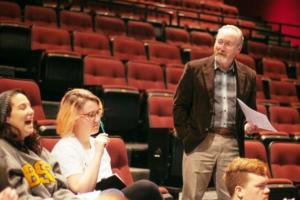

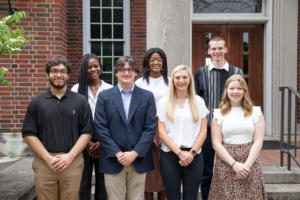
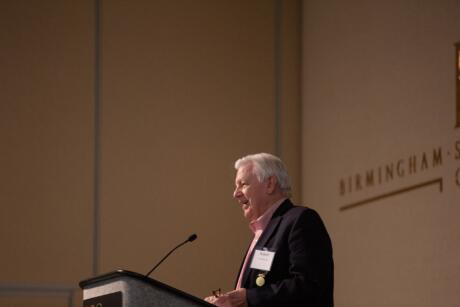
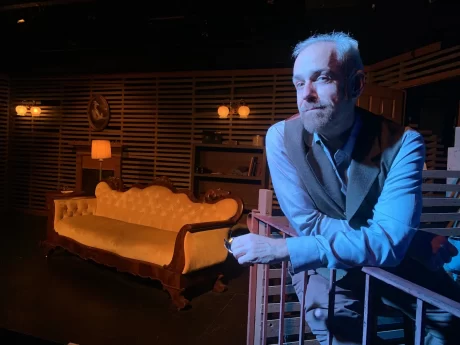
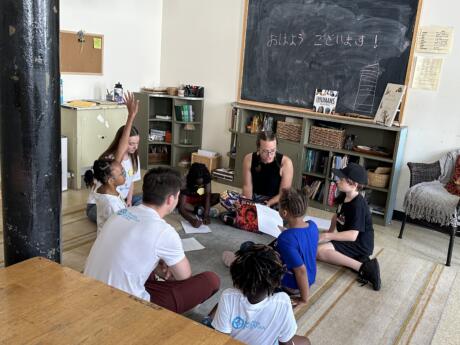

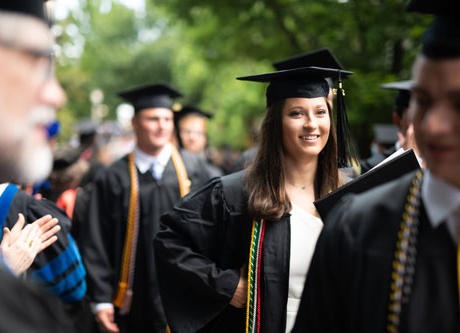



// Comments are closed //